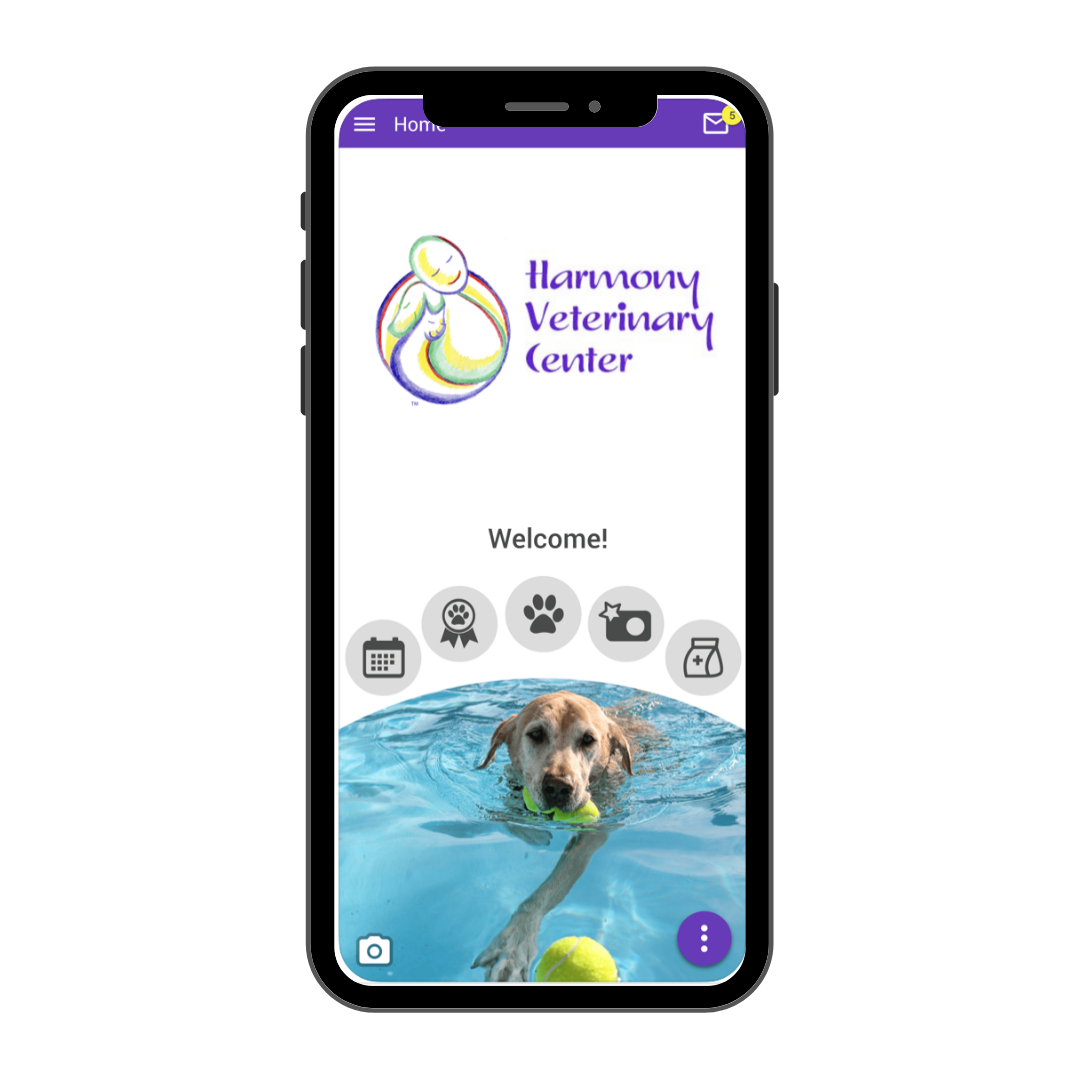Pet Poison Prevention Month
Did you know that March is Pet Poison Prevention Month? While most pet poisonings are accidental, nobody wants their furry friend to eat something harmful. So how can things like this be prevented? Learning more can always help. Each year, the American Society for the Prevention of Cruelty to Animals (ASPCA) researches the most common calls to veterinary clinics to show the biggest risks for pets in the US. In 2021, their Poison Control Center received over 320,000 calls about toxins for pets. We’d like to shed some light on the top 3 risks. To learn more about the Top 10, click here.
Above all, make sure to seek immediate veterinary care if your furry friend shows signs of poisoning. Call the Pet Poison Helpline at 800-213-6680 or call us at Harmony Vet Center (303-432-8551). If it’s after hours, look up VetTriage under the Emergency tab at harmonyvetcenter.com or find a nearby emergency veterinary clinic that accepts drop-in appointments. We are here to help you with your pet’s health and safety!
Number 1: Over the counter medications
The most common medications that don’t require a prescription but are toxic to pets are ibuprofen, vitamin D, and herbal supplements. This is most always accidental, and you might not notice a dropped capsule until your pet is in distress.
For cats, many different organ systems are affected after ingesting ibuprofen. Feline friends can’t metabolize, or digest, ibuprofen easily, meaning they are even more vulnerable to poisoning. But low doses can still harm dogs, and there are over ten times more cases in dogs than in cats. Signs of poisoning for both cats and dogs include irritation and ulceration of the gastrointestinal tract, which can cause decreased appetite, vomiting, diarrhea, depression, abdominal pain, dark and tarry stools, bloody stools, or pale gums. We’ve also seen uncoordinated pets, changes in drinking and urinary habits, discolored and yellow skin, agitation, tremors, seizures, and even comas. The earlier you bring in your pet after poisoning, the better their chances for recovering quickly after their dietary indiscretion.
Vitamin D poisoning can happen when a dog or cat ingests rodenticides that contain vitamin D, or accidentally eats human medications or supplements. While animals do need some vitamin D to absorb calcium, too much can be dangerous. Signs of poisoning usually start 12-36 hours after ingestion, so it’s important to monitor your pet if you suspect they ate something they shouldn’t have. The severity of symptoms depends on how much was ingested. Smaller doses cause vomiting, diarrhea, increased drinking and urination, abdominal pain, depression, and a lack of appetite. Higher doses can cause kidney failure due to elevated levels of calcium and phosphorus in the body. It’s very important to seek treatment as soon as possible, to avoid more severe symptoms, which include difficulty breathing, bleeding in the intestines, abnormal heart and breathing rhythms, mineralization of body tissues, or even death.
Herbal supplements vary greatly, from essential oils to echinacea to boosts immune health, or turmeric to reduce inflammation. Many products even contain multiple supplements that interact with each other to enhance our health. But just because they are labeled as natural, herbal supplements are not automatically safe for our four legged friends. Always consult your veterinarian before giving your pet any supplement to be sure it is safe and to find out a proper dose. At Harmony Veterinary Center, we often work with supplements, but every cat and dog is different. If you’re interested in pursuing supplements for your pet, speak with your veterinarian to see if they are needed, and what can benefit your pet’s overall wellbeing.
Number 2: Human Prescription Medications
Prescription medications for humans are prescribed in doses safe for our size and species, but most pets are smaller than we are, and aren’t able to tolerate antidepressants, cardiac medications, or ADHD medications. Ingesting human medications often causes gastrointestinal issues for an animal and could lead to serious internal symptoms in severe cases. It’s important to store your medications separately from your pet’s medications, to avoid mixing them up. Never leave loose pills in a plastic bag or something your pet could chew into. Keep containers out of reach, and be aware that medication containers often look like chew toys for your cat or dog.
Antidepressants such as Effexor, Cymbalta, Prozac, and Lexapro can cause neurological problems in pets, which can become acute if not treated immediately. Symptoms include sedation, incoordination, tremors, and seizures. Some of these medications also have a stimulant effect, which can lead to a very high heart rate, blood pressure, and body temperature. If you take Effexor and live with a cat, be sure to take extra caution. Cat’s have been seen to gravitate toward the smell or flavor of this medication and tend to eat the entire pill, which causes serious poisoning.
Cardiac medications range from ACE inhibitors to treat high blood pressure, cholesterol lowering agents, and medications that prevent blood clots. Any of these medications can be harmful to animals if ingested accidentally.
Medications for ADD (Attention Deficit Disorder) and ADHD (Attention Deficit Hyperactivity Disorder) include Adderall, Concerta, and Ritalin. These contain stimulants in a high density to ease symptoms for humans, but ingestion in pets can cause tremors, seizures, high body temperatures, and heat problems. These are life threatening.
Number 3: Human food
The most common food products that cause issues for dogs and cats include protein bars and shakes, xylitol, garlic, onions, grapes and raisins and chocolate. Because our pets don’t have the same digestive tracts as humans and do not have the same nutritional needs, these products can be very harmful, causing anything from vomiting and diarrhea to seizures or death. Cats and dogs should stick to food made for them, but if you are going to give them something from the kitchen, be sure that all the ingredients are safe for them. When cooking for a pet, avoid seasoning that could overwhelm their digestive system. Though our furry friends would love to try our snacks, they will be much happier and healthier with kibble, canned food, and the occasional pet-specific treat.
Xylitol is a naturally occurring substance and is also used as a sugar substitute. It is found naturally in berries, plums, corn, oats, mushrooms, lettuce, trees, and some other fruits. It has become a lot more common in recent years for us humans, both in foods and oral care products. This is why it is especially important to use pet-specific products when brushing their teeth. It is extremely toxic to both cats and dogs, and even small amounts can cause low blood sugar, seizures, liver failure, or even death. Cats often do not experience liver failure or as severe symptoms after ingestion as our canine friends, but are still vulnerable to xylitol poisoning. Fast and aggressive veterinary treatment is key to reverse these effects and prevent the poisoning from getting worse.
Garlic, onions, chives, shallots, leeks, and scallions are part of the allium species, which contain chemical compounds that are toxic for cats and dogs. Ingesting these plants in any form causes destruction of their red blood cells. This results in anemia, lethargy, pale gums, abdominal pain, vomiting, and diarrhea. Consumption most often causes gastroenteritis, where the gastrointestinal tract becomes inflamed. The full onset of symptoms may take a few days to appear, so always watch your dog or cat closely. Never give food that is seasoned with these foods to your pet, and seek early treatment if poisoning does occur.
Grapes and raisins are great snacks for people, but can cause kidney failure in dogs and cats. There are many varieties of grapes, and raisins are found in many popular foods, all of which are unsafe for a pet. Grape-flavored jellies, juice, and wine do not appear to cause poisoning, but these foods are high in sugar and or alcohol, making them still harmful for animals. Most often, your furry friend will vomit within 24 hours of eating grapes or raisins. Later, acute kidney failure may present as nausea, a lack of appetite, vomiting, abdominal pain, excessive thirst, and excessive urination. Acute kidney failure is also a possible outcome. Their blood pressure often increases dramatically and leads to a coma. It is not actually known exactly why these fruits are toxic, making it all the more important to bring your pet to the veterinarian to receive healthcare and improve their prognosis.
Number 4: Chocolate
Chocolate is something that many humans find irresistible. While chocolate might be a desirable treat for us, it should never be given to dogs or cats. Chocolate contains caffeine and theobromine which is similar to caffeine. These chemicals cannot metabolize easily in cats and dogs. These cause symptoms such as vomiting, diarrhea, increased thirst, panting or restlessness, excessive urination, and racing heart rate. More severe symptoms include muscle tremors, seizures and heart failure. Symptoms can take a few hours to develop, remaining in the bloodstream for a longer period. The darker and more bitter the chocolate, the more dangerous it is for your furry friend. However, pets can still become ill from the fat and sugar in lighter or smaller chocolates.
The next items on ASPCA’s top toxins list include plants, household toxins ranging from cleaning products and paint to over indulgence in veterinary products like joint supplements or calming treats, pesticides such as rodenticides and insecticides, and garden products. These toxins can seem like just another treat to a pet, which can feel quite stressful on their humans. Keep in mind there are ways to reduce the risks. Keep potentially unsafe products high up and out of paw’s reach. Keep track of where medications and human health products are. Remember that “child safe” labels don’t necessarily mean “pet safe,” and your cat or dog may show off their creativity when they unlock a complicated latch, or tear open the trash bag. While natural and plant-based household products are better for human health, these can still harm pets when ingested. Information is available to help your pets, so check out our educational articles to learn more about a specific toxin. In order to give your cat or dog the best chance of recovery, seek out treatment immediately or as soon as possible. Call the Pet Poison Helpline, a 24/7 service available in North America at the number 800-213-6680. According to the ASPCA.org, there is a consultation fee for using the Pet Poison Helpline as they receive no outside funding. For general, non-urgent questions, please email info@harmomyvetcenter.com, or call 303-432-8551.



